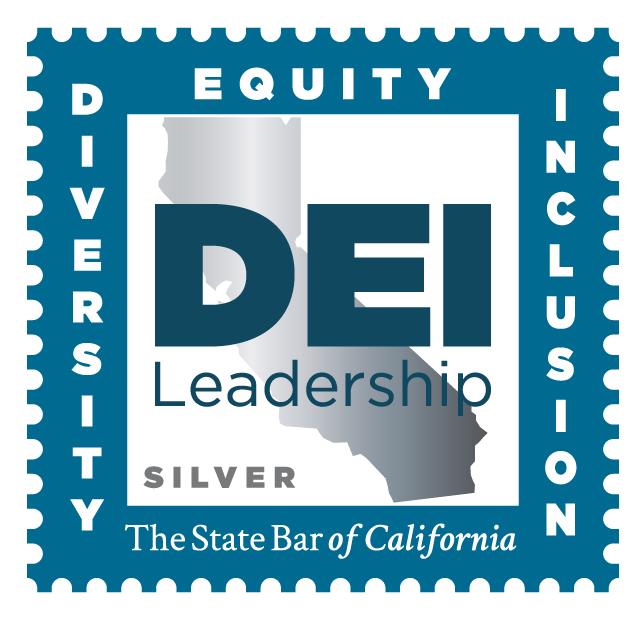Our Priorities
Every year, Community Legal Aid SoCal’s Board of Directors adopts organizational priorities that reflect the needs of residents in our service area to guide our practice in the coming year. These priorities are based on organizational data, organizational values, and input from client-eligible Board members as well as clients and client-eligible individuals surveyed during our Community Needs Assessment process.
Board members consider these priorities annually at their November Board meeting. 2024 priorities were adopted on November 27, 2023; there were no changes in Community Legal Aid SoCal’s organizational priorities from 2023.
2024 Organizational Priorities
Community Legal Aid SoCal (CLA SoCal) places high priority on those cases and matters in which legal assistance supports the integrity, safety, and well-being of the family. CLA SoCal’s first priority is to serve survivors of domestic violence. This includes representation in domestic violence restraining orders, legal separation, divorce, custody cases involving unmarried parents, and guardianship cases – all with an emphasis on cases where the safety and well-being of client and children are at risk.
As part of our support for safe and stable families, CLA SoCal also places a high priority on representing immigrant survivors of domestic violence, sexual assault, and other violent crimes in their immigration matters. This includes representation in U Visa applications, VAWA self-petitions, and asylum cases. CLA SoCal also assists lawful permanent residents in obtaining their citizenship status.
CLA SoCal places high priority on enabling families or individuals to preserve their homes, as well as assisting those families or individuals who have lost their home. This priority includes the representation of those persons who are threatened with the loss of housing due to eviction, uninhabitability, or foreclosure. It also includes the representation of individuals and families threatened by unsafe or unhealthy conditions in both public and private rental housing and of disabled individuals who are facing discrimination from their landlords.
CLA SoCal places high priority on cases and matters in which the source of income of a family or individual is at risk. This includes representation in cases involving eligibility for needs-based benefits, employment- based benefits (e.g., workers who have lost their jobs or become disabled) , and other legal matters which may threaten the basic economic stability of individuals or families. In addition to cases and matters directly involving public benefits and employment law, CLA SoCal places priority on other cases and matters which address debt issues, fraud, and joblessness such as consumer law and expungement.
CLA SoCal places high priority on issues relating to community health and wellbeing. This includes cases related to eligibility for health insurance programs, denial, or delay of health services (including dental and mental health services), and improper medical billing.
CLA SoCal places high priority on populations with special vulnerabilities, particularly elderly or vulnerable individuals. Many of these individuals experience additional and more challenging barriers based on difference in language, culture and educational backgrounds, identity as a person of color, LGBTQ+ identity, disability, or other oppressed identities.
CLA SoCal places high priority on addressing the intrinsic link between racism, social inequality and oppression, the intergenerational perpetuation of poverty and injustice, and the trauma of these experiences. CLA SoCal is committed to creating an organization-wide shared understanding and commitment to racial justice, cultural humility, intersectionality, and trauma-responsiveness. This priority enhances our racial justice work, social impact, and trauma-responsive approach within our organization and in the communities we serve. Commitment to this priority is also evidenced in CLA SoCal’s case management services for clients.
CLA SoCal is committed to delivering the highest quality legal services possible based on its available funding. This includes centralized telephonic and online intake and the use of self-help clinics whenever such clinics can provide important and useful information and assistance to clients on a cost-effective basis. Additionally, CLA SoCal is committed to engaging the private bar in delivery of pro bono legal services through collaboration with law schools, bar associations, individual attorneys, law firms, and corporate legal departments. Partnerships with other legal services organizations and social service agencies to provide complementary services play a key role in the delivery of services that address our clients’ legal needs.
The priorities adopted by CLA SoCal encompass the provision of legal services through litigation, administrative proceedings, negotiation, advice and counsel, and brief service. CLA SoCal also prioritizes systemic advocacy work through impact litigation, community partnerships, and policy advocacy. Additionally, the priorities include the provision of community education events, pro se clinics, information concerning the availability of legal assistance, development of materials concerning legal rights and responsibilities, and continuing education.
In order to provide high quality service in a more efficient manner, CLA SoCal has established a centralized telephone and online legal advice and intake delivery system, through our Intake and Assessment Unit. The Intake and Assessment Unit provides advice and counsel, referrals, and schedules follow-up appointments for priority direct services. Intakes are also done at various offsite clinics at partner agency locations to extend the program’s reach throughout the community.
To best serve eligible clients who call the Intake and Assessment hotline, CLA SoCal places high priority on providing advice, counsel, and referrals even if such service is provided in cases and matters which may not otherwise be delineated as priorities for full service.
This does not include those types of cases and matters in which a Legal Services Corporation grantee is precluded from providing service.




